Business
ECOWAS Pushes for Key Reforms to Boost Trade Across West Africa
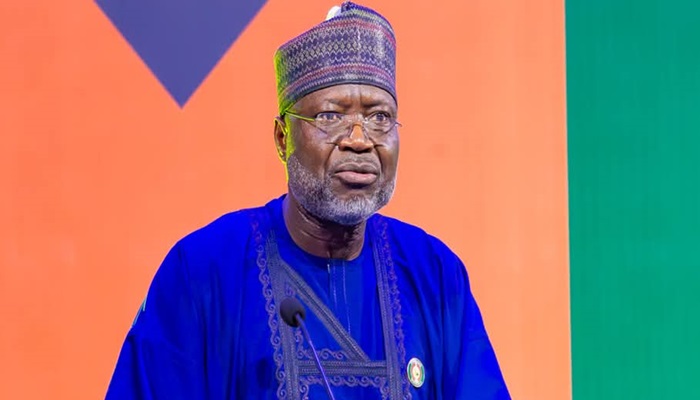
The President of the ECOWAS Commission, Dr Oumar Alieu Touray, has called for urgent reforms to boost trade between West African countries. During the launch of ECOWAS’s 50th anniversary in Accra, Ghana, on Tuesday, he said that trade among member states is still low, at just 12 percent. He urged governments and investors to improve infrastructure, remove trade barriers, and take advantage of the region’s market of over 400 million people.
ECOWAS at 50: Celebrating Progress, Confronting Challenges
The Economic Community of West African States is marking 50 years since its founding. The celebration began with a major event in Accra, Ghana. Leaders from across the region, including Liberia’s President Joseph Boakai and former Ghanaian President Nana Akufo-Addo, attended the launch.
Dr Touray highlighted the progress ECOWAS has made in promoting regional unity and development. He emphasized that the community’s achievements over five decades deserve recognition.
Intra-Regional Trade Still Low
Despite the long history of ECOWAS, trade between member states remains limited. Only around 12 percent of trade happens within the region. Dr Touray called for urgent reforms to remove non-tariff barriers, such as customs delays and regulatory differences.
He stressed that improving trade would boost economic growth and create more jobs across West Africa.
Key Reforms and Projects Highlighted
Dr Touray outlined some of the key policies and programs in place to improve trade. These include the ECOWAS Trade Liberalisation Scheme, which already supports over 15,000 companies and more than 50,000 products with duty-free access across the region.
He also referred to the Free Movement Protocol that allows citizens of ECOWAS countries to travel, live, and work across member states without a visa. Another reform is the Interconnected System for Goods in Transit, now working in seven countries, which helps reduce customs delays and speeds up delivery.
Major Infrastructure Plans Underway
The ECOWAS Commission has developed a 25-year plan to improve infrastructure. The plan includes 201 projects in transport, energy, telecommunications, and water management. These projects are valued at about 131 billion US dollars.
One of the major projects is the Lagos–Abidjan Highway, a 1,028-kilometre road expected to cost nearly 15 billion dollars. Other important routes include the Banjul–Dakar–Abidjan corridor and the Abidjan–Praia Maritime route. These projects are expected to improve trade, travel, and logistics across the region.
Improving Energy Access
To close the energy gap in West Africa, ECOWAS is investing in off-grid electricity. The off-grid access program is worth 340 million dollars and aims to bring power to remote and underserved areas. This will support businesses, schools, and homes in rural communities.
The region is also working through the West African Power Pool to connect national power grids and share energy resources more effectively.
Focus on Health, Agriculture, and Jobs
Dr Touray praised the efforts of the West African Health Organisation. This body played a key role during the Ebola outbreak, the COVID-19 pandemic, and recent Mpox cases.
He also mentioned that ECOWAS is working on climate-smart farming, food security, and vocational training. These efforts aim to improve daily life and economic opportunity for citizens, especially young people.
Peace and Security Remain a Priority
Peacekeeping and democracy promotion remain core goals of ECOWAS. Over the years, the bloc has supported political stability in Liberia, Sierra Leone, Côte d’Ivoire, Guinea-Bissau, and The Gambia.
One key example was in 2016, when ECOWAS intervened in The Gambia to ensure that the election results were respected and a peaceful power transition occurred.
Maritime Security Successes
The region has seen improvements in maritime safety. Since 2024, there have been no piracy incidents in West African waters. This is a result of stronger coordination and security measures led by ECOWAS, especially in the Gulf of Guinea.
Responding to Regional Challenges
Dr Touray acknowledged the political challenges facing ECOWAS. Mali, Burkina Faso, and Niger have announced plans to leave the bloc and form the Alliance of Sahelian States.
As part of the anniversary launch, ECOWAS ministers of foreign affairs and finance are holding an extraordinary meeting to discuss the withdrawal and prepare for the next summit of West African leaders.
A Message of Hope and Unity
The theme of the 50th anniversary is Stronger Together, For a Brighter Future. It highlights the power of unity and regional cooperation. Dr Touray said that the region must stay united and continue working together to build a better future.

-
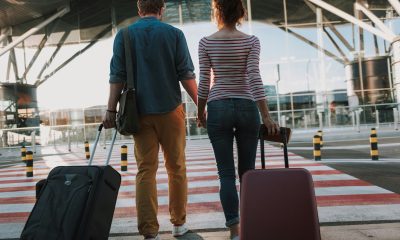
 Travel2 days ago
Travel2 days ago‘Trip-Chaining’: The new travel trend saving Brits up to a week of annual leave
-
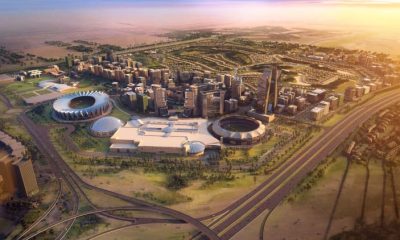
 World2 days ago
World2 days agoDubai Sports City sees AED 4.7 billion in property sales over the last year
-

 Tech2 days ago
Tech2 days agoAI use in businesses jumps 3,000 percent as cyber threats grow
-
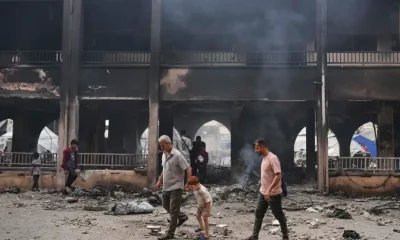
 World2 days ago
World2 days agoIsraeli airstrikes kill 28 in Gaza as conflict continues
-
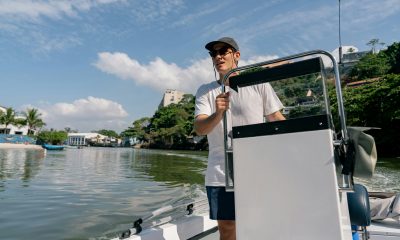
 Lifestyle2 days ago
Lifestyle2 days agoDon’t let seasickness ruin your spring getaway!
-

 Lifestyle2 days ago
Lifestyle2 days agoRevealed: Study Maps Global Hotspots For Romantic Getaways
-
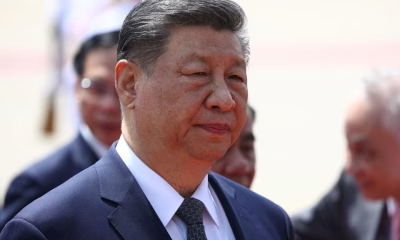
 Politics2 days ago
Politics2 days agoXi Jinping: China’s Climate Change Efforts Will Stay Strong Despite Global Politics
-
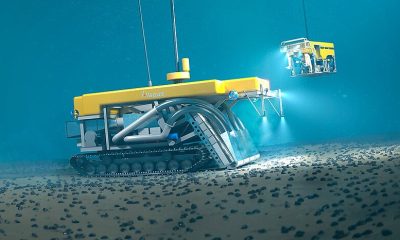
 World22 hours ago
World22 hours agoTrump Moves to Allow Seabed Mining in International Waters






